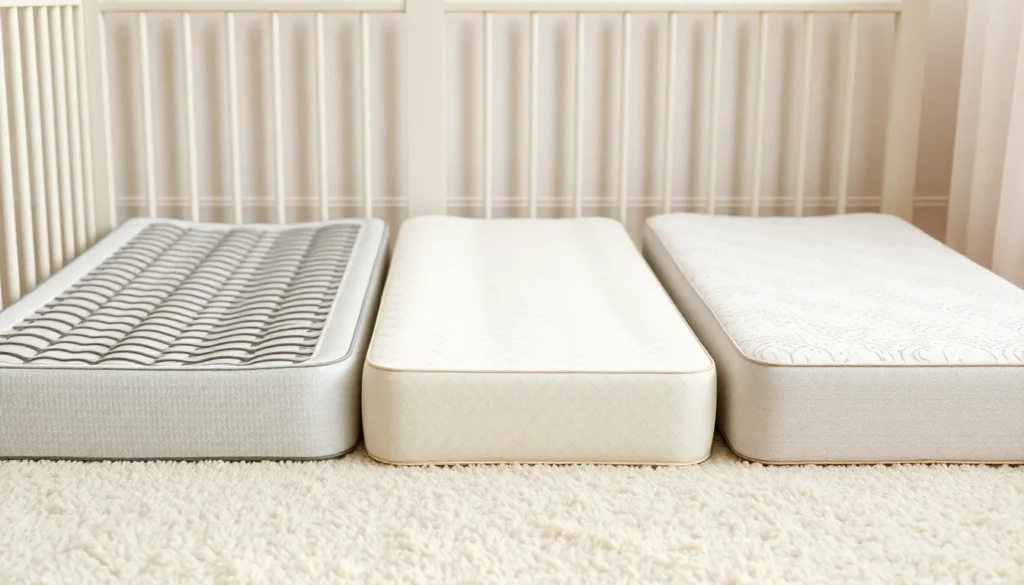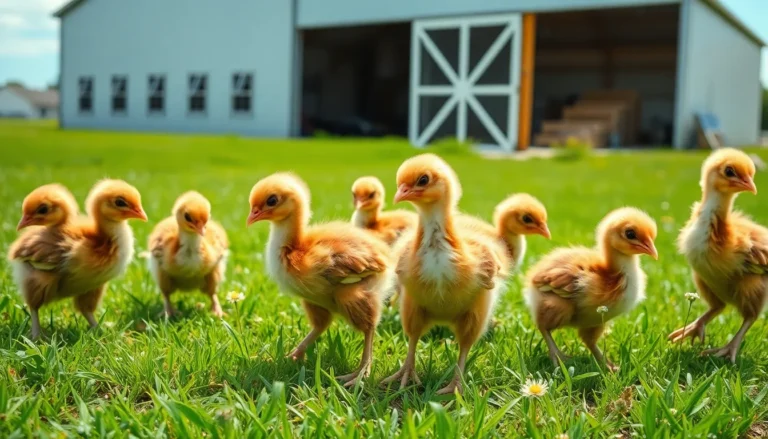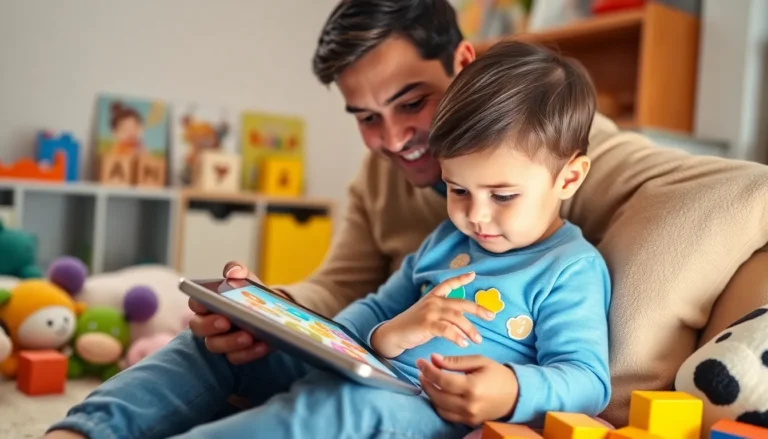Choosing the right crib mattress can feel like a high-stakes game of Goldilocks—too firm and it’s like sleeping on a rock, too soft and it’s a recipe for disaster. Parents want their little ones to sleep soundly, but with so many options out there, it’s easy to get lost in a sea of foam, coils, and organic materials.
But fear not! Finding the perfect crib mattress doesn’t have to be a daunting task. With a little guidance, parents can navigate the world of baby sleep gear like pros. After all, a happy baby means a happy parent—plus, those precious hours of sleep are worth their weight in gold. So let’s dive into the essentials that’ll help make crib mattress shopping a breeze.
Table of Contents
ToggleOverview Of Crib Mattresses
Crib mattresses play a crucial role in ensuring safe and comfortable sleep for infants. Parents must consider several factors when selecting the right option. Firmness can impact a baby’s safety and comfort; a mattress that is too soft increases the risk of suffocation or Sudden Infant Death Syndrome (SIDS).
Materials used in crib mattresses vary significantly. Many options include innerspring, foam, and organic materials. Innerspring mattresses offer support through coils that provide a firm surface. Foam mattresses tend to be lightweight and ergonomic, while organic options often utilize natural materials free from harmful chemicals.
Sizes typically measure 28 inches wide by 52 inches long but may vary by brand. Ensuring a proper fit within the crib frame is essential; gaps can pose safety hazards.
Safety certifications exist for crib mattresses, with Greenguard Gold and CertiPUR-US being noteworthy examples. These certifications confirm fewer chemical emissions and safer materials. Brands with these certifications often prioritize infant health.
Weight influences not only portability but also durability. Heavier mattresses tend to be more robust, ensuring longevity, while lighter options simplify changing sheets.
Price ranges for crib mattresses reflect various features, with more economical choices starting around $70 and premium models exceeding $300. Investing in a quality mattress may enhance sleep quality for both baby and parents.
As they navigate choices, parents should prioritize firmness, materials, and safety certifications. Information empowers better decisions in creating a safe sleep environment for their little ones.
Types Of Crib Mattresses

Parents can choose from several types of crib mattresses, each offering distinct benefits for their infants’ sleep quality.
Innerspring Crib Mattresses
Innerspring crib mattresses feature a core of metal coils, providing strong support. These mattresses often ensure excellent firmness, reducing the risk of suffocation. They also promote airflow, keeping the baby comfortable during sleep. Options with additional padding enhance comfort, making these mattresses suitable for infants and toddlers alike. Standard dimensions make them compatible with most cribs. High-quality innerspring mattresses typically range from $100 to $300.
Foam Crib Mattresses
Foam crib mattresses are lightweight and offer a range of support levels. Various densities of foam provide different firmness options, catering to individual preferences. Many of these mattresses are made from CertiPUR-US certified foam, minimizing harmful emissions. They often come at a lower price point, starting around $70, appealing to budget-conscious parents. Some foam models are waterproof, ensuring easy cleaning and maintenance. Durability varies, so selecting a reputable brand is essential.
Organic Crib Mattresses
Organic crib mattresses prioritize safety by using natural materials. Often crafted from organic cotton, wool, or natural latex, these options reduce exposure to harmful chemicals. Certifications like Greenguard Gold indicate lower emissions, reassuring parents about their baby’s health. Although typically more expensive, ranging from $150 to over $300, many consider the investment worthwhile for peace of mind. They also incorporate eco-friendly production methods, appealing to environmentally conscious families.
Key Features To Consider
When selecting a crib mattress, several key features directly impact safety and comfort. Prioritizing firmness, support, safety certifications, and waterproof covers enhances the overall sleeping environment for infants.
Firmness And Support
Firmness affects sleep safety and comfort. A mattress that’s too soft increases suffocation risks. Optimal firmness offers necessary support for developing bodies, reducing the chance of SIDS. Innerspring mattresses provide robust support and excellent airflow, while foam options offer various densities for different needs. Consider personal preferences along with the firmness level. Healthy infants typically require a mattress that balances comfort with the right amount of support.
Safety Certifications
Safety certifications represent essential indicators of quality. Certifications like Greenguard Gold and CertiPUR-US assure parents that a mattress contains fewer harmful chemicals. These certifications prioritize infant health and well-being. Purchasing mattresses with these safety labels allows parents to ensure their baby’s environment is safe. The presence of certifications often guarantees that materials used meet strict safety standards, contributing to overall peace of mind.
Waterproof Covers
Waterproof covers protect against spills and accidents. A mattress with this feature simplifies cleaning and helps maintain hygiene. Many options are available for waterproof covers, often made from safe materials. This protection minimizes the risk of mold and allergens, enhancing sleep quality. Selecting a crib mattress with a waterproof cover helps create a cleaner and healthier sleep space for infants.
Popular Crib Mattress Brands
Several brands offer high-quality crib mattresses, each designed to meet the needs of infants and their parents. Consider these three popular options.
Brand A
Brand A specializes in crib mattresses that balance safety and comfort. Known for its organic materials, it prioritizes health-conscious parents. The mattresses often feature certifications such as Greenguard Gold. Firmness is a key characteristic, ensuring support while minimizing suffocation risks. Various weight options are available, allowing for easier portability. Price ranges from $100 to $250, making it accessible for many budgets.
Brand B
Brand B emphasizes innovative design and breathability in its crib mattresses. A popular choice among parents, it combines foam and innerspring technology. This design creates a supportive surface that encourages airflow, which helps regulate temperature. Additionally, it includes waterproof covers, adding a protective layer against spills. Price points vary, often falling between $150 and $300, offering premium options for discerning parents.
Brand C
Brand C offers a range of budget-friendly crib mattresses without sacrificing quality. Known for its durable foam options, it provides adequate firmness for safety. Many of the products carry safety certifications like CertiPUR-US, confirming low chemical emissions. Customers appreciate the lightweight design, making it convenient for those who move mattresses frequently. The price typically ranges from $70 to $150, appealing to budget-conscious families.
Choosing the right crib mattress is a crucial decision for any parent. It directly impacts the safety and comfort of their baby during sleep. By focusing on firmness materials and safety certifications parents can ensure their little ones have a restful night.
The variety of options available means there’s a suitable choice for every family’s needs and budget. Prioritizing features like waterproof covers and robust support will contribute to a healthier sleep environment. With the right guidance parents can navigate this essential purchase with confidence, ultimately fostering better sleep for both baby and caregiver.








